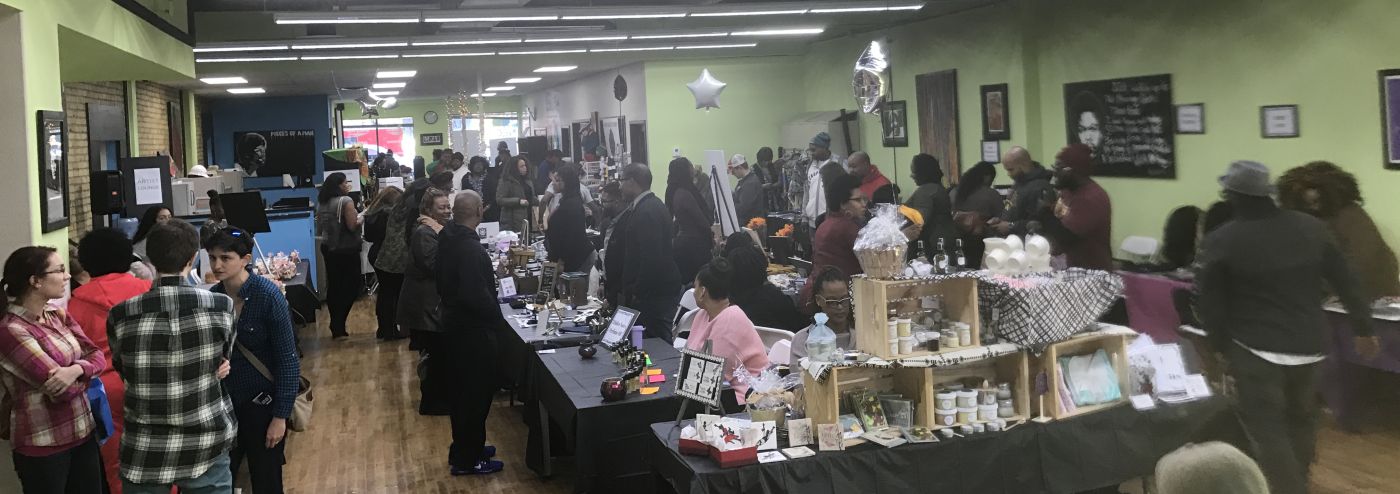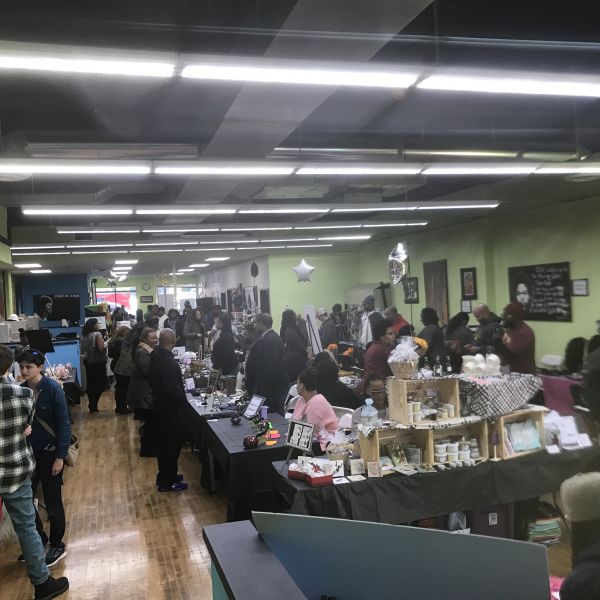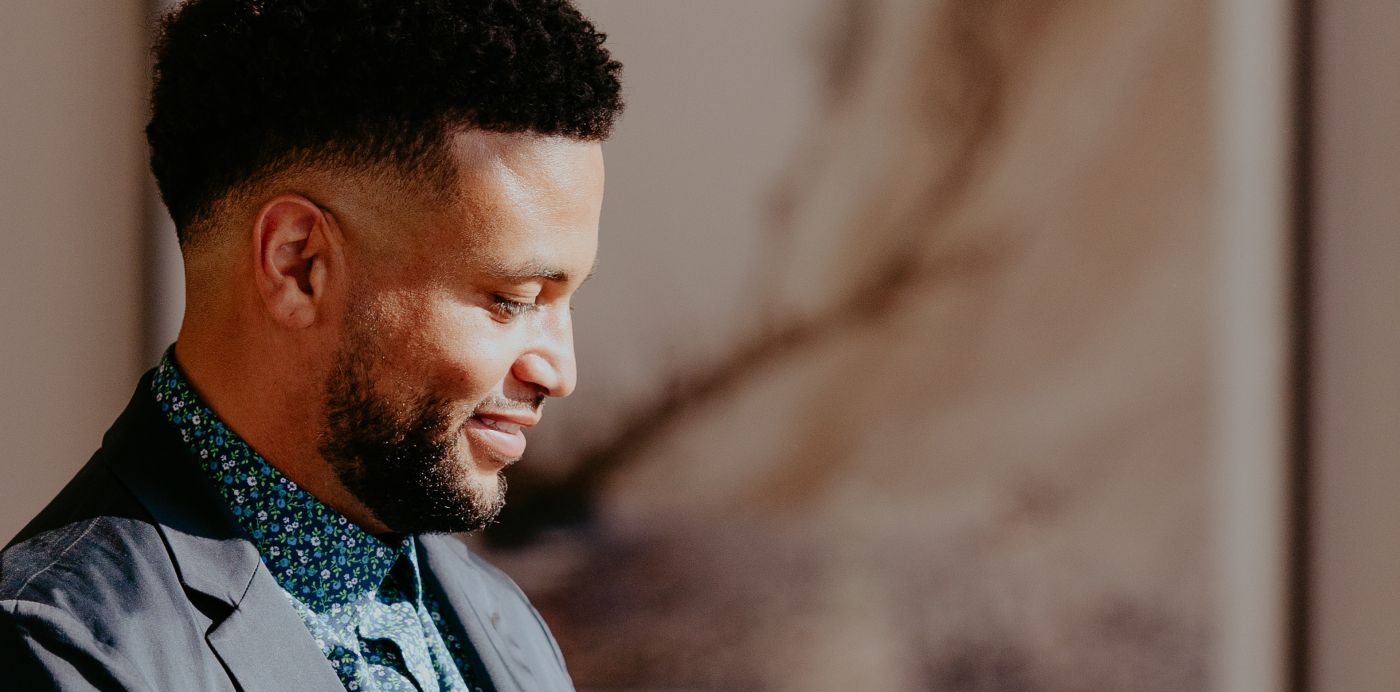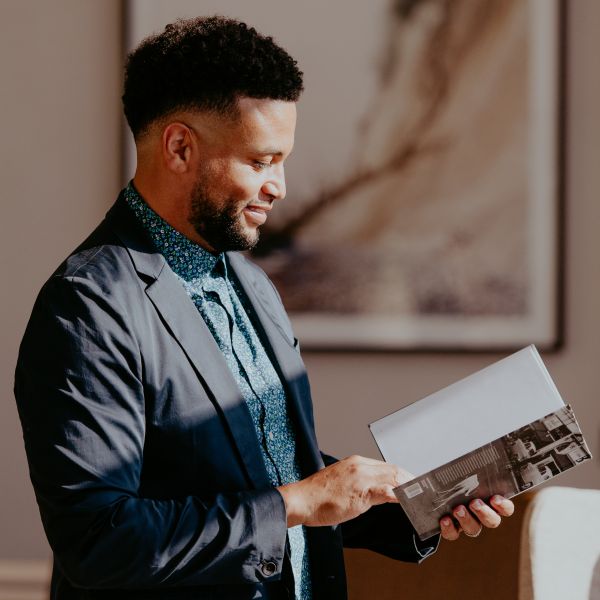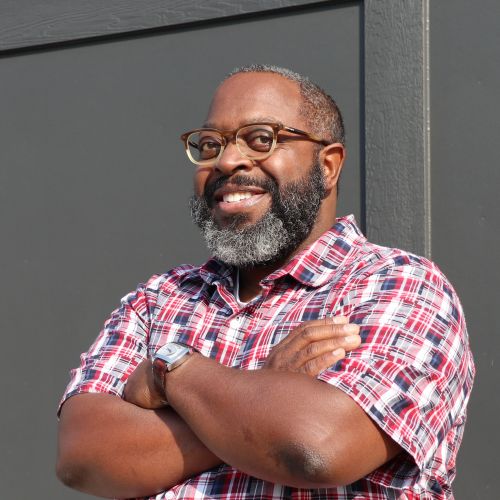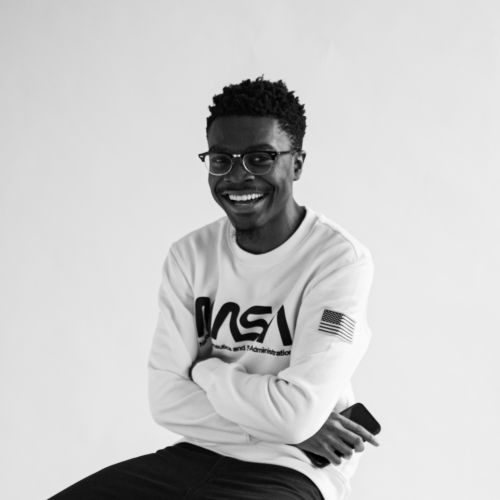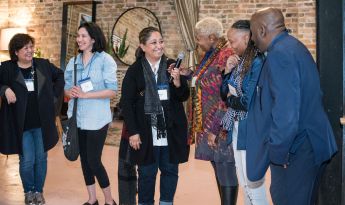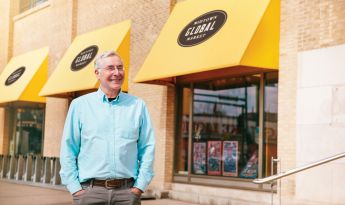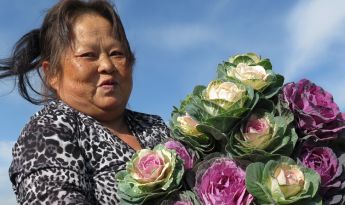Story
Alliance Builder
Marcus Owens (BF'17) leads the African American Leadership Forum into a new era for Black opportunity and connectivity
DATE
May 14, 2021
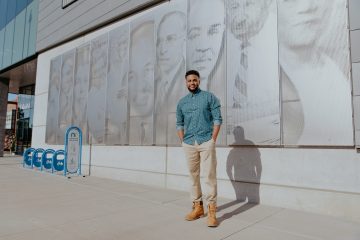
Marcus Owens (BF’17) is a self-described builder. As a leader, he listens to what the community wants to create. Then, he finds and prepares the people, processes and institutions to move those ideas forward.
,
Owens became executive director of the African American Leadership Forum (AALF) in 2018 and demonstrated his talent for leadership right away. Based in the Twin Cities, AALF is essentially a network-building and training organization for Black leaders in Minnesota. Its work can look like a virtual town hall where local leaders lay out the challenges of COVID-19. It can also be a task force focused on a goal identified via community engagement (for example: a need for more healers, or for accessible green space).
,
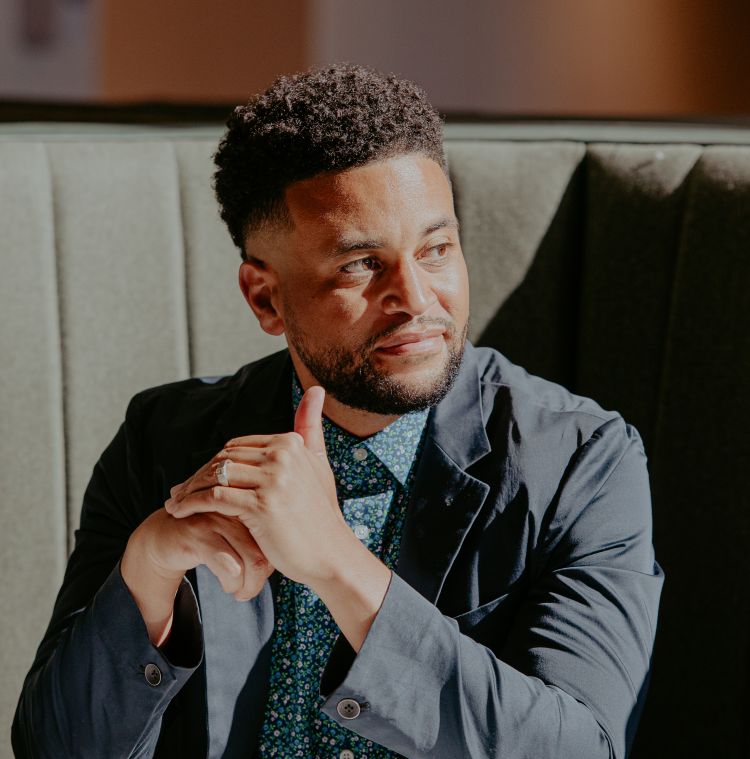
Over its history, AALF has tackled disparities across sectors in the Black community by bringing leaders together to promote initiatives for change. Because AALF provides critical aid and capacity building to other changemaking organizations, it has received Bush Foundation Ecosystem Grants for operational support. This funding supports AALF initiatives such as the Josie R. Johnson Leadership Academy training programs.
During a tumultuous 2020, AALF marked its 10-year anniversary. Owens looks back on it as a year of transformation and blossoming. As the Twin Cities received national attention during the summer, AALF looked for ways to help the Black community recover from the “triple pandemic” of the global COVID-19 crisis, the killing of George Floyd and the uprising that followed.
“Once George Floyd was murdered, it opened a big wound in our community,” Owens says. “One of the things we’d been working on for the past few years was mental health support for our community.” In the summer of 2020, AALF set up “90 days of healing,” which included physical and mental healing groups so people could talk through the trauma the community was feeling. It led to new partnerships with the Healing Justice Foundation and Cultural Wellness Center for this work going forward.
,
It was also a chance to lean into the organization’s purpose for existing: “bringing our community together — the individual leaders and institutions, but also various allies and system players.” In short order, while its team sheltered in place due to the global pandemic, AALF called on its network to address emerging community needs. Four new projects were ultimately created, focused on health and wellness, tightening family and cultural bonds, improving educational opportunities and creating economic development.
,
“We had to adapt to a new virtual world,” Owens says. AALF activated its network by hosting online community events for local leaders to generate project ideas, and workstream groups to develop actions based on those ideas.
,
Seeing Black-owned businesses they supported be deeply impacted by pandemic stay-at-home orders, AALF partnered with seven local nonprofit organizations to form the Black Business Support Collective (supported through a Bush Foundation Community Innovation Grant). To get a clear picture of the financial challenges across the state, the group sent out surveys. Using findings from nearly 100 responses, the collective could align resources like Paycheck Protection Program loans and protective equipment so businesses would have the support they needed when they were ready to reopen.
,
In the fall of 2020, AALF partnered with the Minnesota Department of Health and the Phyllis Wheatley Community Center to set up the Minnesota Black Community COVID-19 Hotline. It provides community members guidance if they test positive for COVID-19, lose a job, experience food insecurity or need a place to stay. When vaccines became available, the Hotline provided information on vaccine access as well.
Born to Lead in North Minneapolis
,

Leadership is both in Marcus Owens’ nature and something he has purposefully cultivated. A fourth-generation resident of North Minneapolis, Owens learned the neighborhood by tagging along with his grandfather, a retired foreman who had worked for the large local employer Onan (now Cummins Onan). “He showed me a lot of different places — northside, southside, St. Paul,” Owens says, “because he was connected beyond the neighborhood.”
Owens’ father coached youth sports teams and was involved in activities for children at North Commons Park. Looking back on that time, Owens says, “I grew up in a village atmosphere where people took care of each other.” After graduating from high school at Minneapolis North, he got a business degree in 2004 at Metropolitan State University.
“Marcus is proud of where he lives in the city, and he’s committed there,” says James Burroughs, vice president and chief equity and inclusion officer at Children’s Minnesota. He has known Owens for more than 10 years. “He’s very passionate about the work he’s doing for the African American community at AALF.”
Owens started his career as an entrepreneur and eventually transitioned to the corporate sector, including seven years at Target Corporation. During that period, he began an MBA program at the University of St. Thomas. As part of a leadership course, Owens made a 10-year plan that changed his career trajectory. “The biggest goal in it was to have developed a model for community development that changes the trajectory of my community,” he says. “I had career goals of leading an organization that made a positive impact, and that I found ways to get more involved with my community.”
,
At the time, he was serving on the board for the Northside Economic Opportunity Network (NEON), a nonprofit focused on launching local entrepreneurship (also a Bush Foundation grantee). When NEON’s executive director left the organization, Owens knew they were looking for a replacement. “I looked at my plan,” he says. “I looked at the job description, and I thought, ‘Oh, I have to do this.’ This opportunity was waiting for me to really make a change and make a difference.”
,
,
Owens saw NEON as an ideal setting to merge skills he developed in corporate America, and as an entrepreneur himself, with a passion for working in the community. Using his talents for operations, human resources, finance and marketing, he could make the organization more responsive to the community.
,
Over approximately three and a half years at NEON, Owens increased the operational budget by 40% and the number of employees by almost 50%. It was important to Owens that NEON’s services were centered in best practices of the broader entrepreneurial industry, such as Design Thinking and the Lean Canvas model, and could be adapted to fit client profiles. He emphasized starting small and building to reduce financial risk — which also allowed them to start faster.
,
“With Marcus it’s not about Marcus, it’s about the work,” says Minnesota Public Radio president Duchesne Drew, a member of AALF’s board and former vice president at Bush Foundation. “It’s about the community. He cares about things that are central to the work he’s doing.”
,
Bringing New Leadership to AALF
While at NEON, Owens came to understand that the work he wanted to do needed to go beyond the neighborhood and provide support services beyond entrepreneurship. “I felt like I was meant to lead at a really high level,” Owens says. “I felt I had the necessary skills and abilities to be a major part of the movement.”
,
In 2018, Dr. Sylvia Bartley (BF’14), an AALF board member, approached him about becoming the organization’s next executive director.
,

“What would it look like if AALF redefined community leadership and brought more people into the fold?”
Marcus Owens
,
Owens realized, “AALF had the ability to be the connective tissue that is so needed in our community.” In his assessment, people and organizations serving the Black community were working in silos with different leaders. It created situations where institutions took on bigger burdens than was necessary. “What would it look like,” he wondered, “if AALF could be that? What would it look like if AALF redefined community leadership and brought more people into the fold?”
,
Owens spent his first six months assessing the organization’s assets and deficiencies. Working with AALF’s network, he identified four persona types for community leaders to seek out and partner with. There are thought leaders who contextualize issues; builders who create programs and institutions and build up people; influencers who activate and organize the community; and the trusted voices in the community known as ambassadors.
,
Among his first actions at AALF, Owens promoted the idea that community leaders should see themselves in only one of the four categories. “Which one brings you passion?” he asked. AALF encouraged individuals to develop themselves in one form of leadership and collaborate across the other three. “Leaders who try to do all four aren’t as effective as they could be because they’re taking on the weight of the world,” he says.
,
“Often, the stories that are told about us are not informed by us. So how do we create spaces where these magnificent leaders in our community can come tell their story?”
Marcus Owens
,
Second, having defined leadership, Owens began to work on inspiring the community to work differently. AALF developed Black-Centered Design, which Owens describes as using the team’s knowledge and experience to develop insights, define problems and engage the right community members to develop solutions. “[We] ask them, ‘What would it take to get those solutions to scale or to a point where it would create a positive impact?’” he says. Community leaders can then identify policies that are getting in the way, resources that are lacking and connections that aren’t being made. AALF initiates the process by inviting leaders to share their brilliance at “community harvest” gatherings. Different stakeholders select projects to solve a problem, and then AALF develops work plans so that the projects can be completed.
,
Third, AALF and Owens created platforms to change the narratives in the Black community. “Often,” Owens says, “the stories that are told about us are not informed by us. So how do we create spaces where these magnificent leaders in our community can come tell their story?” AALF created a biweekly Black Lives Amplified Town Hall focused on health equity. It started with COVID-19 but grew to include topics ranging from policing to education, from economic opportunity to the different components of health itself.
,
AALF has a podcast called Black Leadership Redefined that goes deeper into those problems and records profiles on leaders. They also issue a spinoff on topical so-called white papers called “Black papers.” “The idea is to center our experience,” he says.
,
“[Marcus is] a builder for sure,” Dr. Bartley says. “He’s really built up the organization.” Dr. Bartley describes Owens as methodical, driven by metrics, hands-off with his team to allow them to grow, and a strategic thinker. “During difficult times,” she adds, “you see who the strong organizations and leaders are. During the adversity of 2020, under Marcus’s leadership, AALF quietly stepped up and provided leadership for the community.”
,
Staying Equipped to Lead
In addition to a demonstrated commitment to leadership, Owens also focuses on a broad spectrum of health: mental, physical and emotional. True to his values, he’s focused on his own health and the community’s health. Both parts gained renewed emphasis in his work in 2020. A few months before Owens’ journey at AALF began, he started his Bush Fellowship to study, among other things, ways he could become healthier and encourage others to do the same.
,
“I went through a period where I was exhausted and feeling burned out,’” Owens says. “If you’re going to do the heavy work, you’re going to expend a lot of energy mentally, physically, emotionally.” Owens began intentional therapy and mindfulness practices devoted to mental health. This included float therapy: lying in salt water in a hyperbaric chamber.
,
,
During his Bush Fellowship, Owens also wanted to travel to bring a global perspective to his work in the Twin Cities and to see his community through a different lens. Four months after starting the Fellowship, he attended the Young American Leaders Program at Harvard University and met leaders from across the country. “We shared similar interests and passions,” he notes. “So that was my time to learn, ‘Yeah, you are what you think you are; no one can tell you you’re less.’”
,

Owens and another member of his Fellowship class, Emmanuel Oppong (BF’17), visited Ghana together. “It was a spiritual experience that I’d never had,” Owens says. “I felt like once I saw the slave castles that my ancestors went through, once I saw the kingdoms and the history of the kingdoms, once I got to put my feet firmly in the land I felt my people came from, I felt something was returned to me.”
Owens also made lasting connections as a participant in the Integrated Capital Institute (now called Just Economy Institute) using Bush Fellowship funds. Based in California, the institute brings together financial activists to develop skills for turning financial and social capital into systemic change. Building off of Owens’ experience, AALF obtained a 2020 Community Innovation Grant from the Bush Foundation to explore integrated capital models, including developing investment funds. This grant aligns with the Foundation’s impact investing objective of advancing equity in capital markets, as well as AALF’s mission to eliminate racial wealth gaps.
,
Future Alliances
After building a solid foundation at AALF and testing it during the triple pandemic, Owens is looking at what’s next. “We think we have a tremendous opportunity to be a hub or the backbone of an Alliance of Alliances,” he says. Announced in March of 2021, the Alliance of Alliances will help AALF be the connective tissue it imagined it could be.
,
Working with the Itasca Project, Greater MSP and Omicron Boulé, the local chapter of the Black professional fraternity Sigma Pi Phi, the Alliance of Alliances has a 10-year plan to advance racial equity. The plan brings together members from the corporate, philanthropy and government sectors representing the Black community for Black-led solutions based upon AALF’s Black-Centered Design principles. The group identified work areas based on eliminating racial disparities in education, employment, housing, public safety, infrastructure, shared responsibility and advocacy. Owens says these are still evolving.
,
“AALF will act as the functional leader for the Alliance work,” he says. “It aligns well with the goals we’ve set out for the organization to amplify the experience and aspirations of the Black community here in Minnesota. It will also support building and strengthening a network of changemakers, systems and allies, who will center around those aspirations and drive change in our region.”
,
,
With efforts supported by the Minnesota Business Partnership and the Minnesota Business Coalition for Racial Equity, the Alliance has received $4 million in financial support from some of Minnesota’s biggest companies, including 3M, Best Buy, General Mills, Thrivent, and the foundation wings of U.S. Bank and Target.
,
Having Black-led initiatives is the focus. Solutions will be “for our community, not to our community,” Owens says. “This effort is going to ramp up over the next three years,” he adds, “but we have a 10-year vision, where people are going to have a place here in Minnesota that can be called home for everybody, not just some.”
,
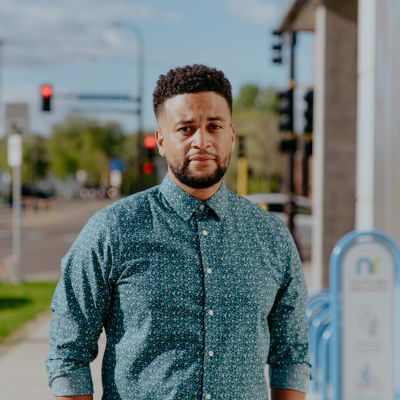
“There’s no reprieve, there’s no celebration. You’ve got to get back to the work.”
Marcus Owens
,
Owens says strategizing so far into the future (“10, 20, 30 years from now”) creates a different relationship with events of the present. Protecting his mental and emotional wellness makes it difficult to be in the work and also a member of the community, he says. For example, he consciously limited his access to social media during former police officer Derek Chauvin’s trial for the murder of George Floyd.
,
“You want to celebrate, you want to cheer,” Owens says of the trial’s outcome. “Just to have a moment of relief. I recall right after the [guilty] verdict, I took a deep breath.” He stops and audibly sighs. “‘All right, back to work.’ There’s no reprieve, there’s no celebration. You’ve got to get back to the work.”
,
,
Continue reading
-
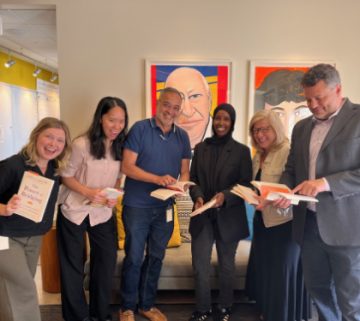
-
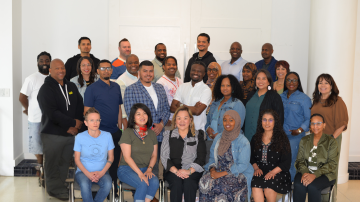
News
Congratulations to the 2025 Bush Fellows!
Each year, we share this joyous announcement as we celebrate the people whose bold vision and leadership are shaping communities in our region. Get to know them!
-
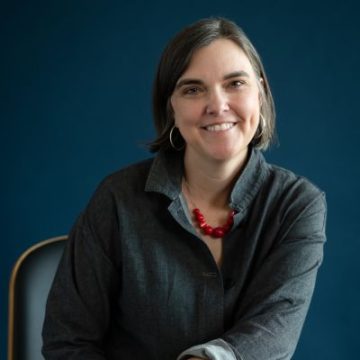
Note from Jen
Doing more to make our region better for everyone
At the Bush Foundation, we already had a commitment to racial equity and George Floyd’s death deepened it. We resolved to do more and do bigger.
